Art & Culture
Exploring the Minimalists Books: A Journey to Simplicity and Purpose
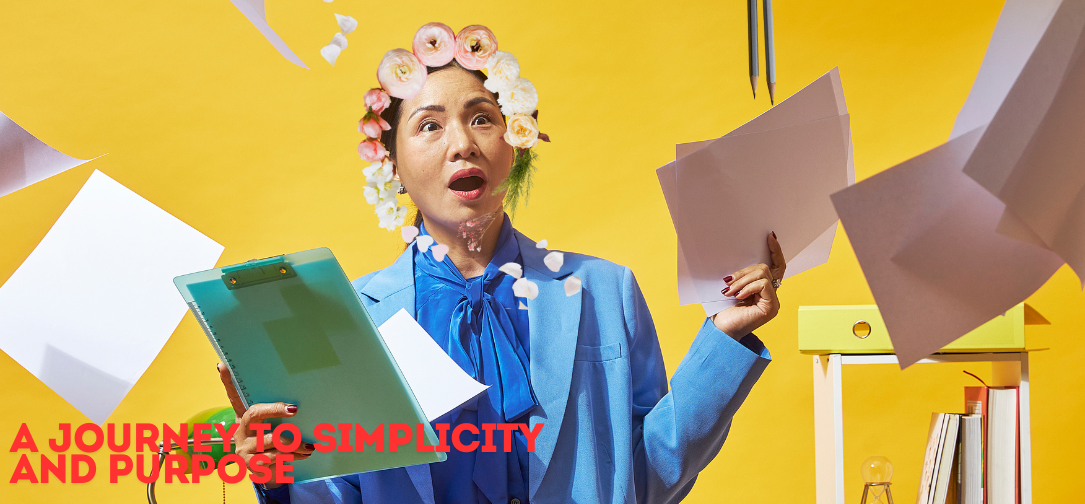
In a world overflowing with stuff, the minimalists books offer a refreshing perspective on living simply and intentionally. Joshua Fields Millburn and Ryan Nicodemus, known as The Minimalists, have penned several works that guide readers on a journey toward a more meaningful life by shedding excess and focusing on what truly matters. Whether you’re just starting out or looking to deepen your understanding of minimalism, these books provide practical advice, personal stories, and a sense of community for anyone seeking a simpler existence.
Key Takeaways
- The minimalists books emphasize the importance of decluttering both physical and emotional spaces.
- They encourage readers to focus on experiences and relationships rather than material possessions.
- Minimalism is presented as a tool for achieving personal freedom and clarity in life.
- Each book offers practical steps and insights, making it accessible for anyone interested in simplifying their life.
- The authors share personal stories that resonate with many, creating a sense of connection and motivation.
Understanding The Minimalists Books
The Philosophy Behind Minimalism
Minimalism, at its core, is about intentionality. It’s a lifestyle that encourages us to question what we truly need versus what we simply want. The philosophy isn’t about deprivation, but rather about freeing ourselves from the burden of excess. It’s about creating space – both physical and mental – for the things that genuinely bring us joy and align with our values. It’s a conscious decision to live with less stuff so we can focus on more meaningful experiences and relationships.
Key Themes Explored
Minimalist books often explore several recurring themes:
- Decluttering: Practical strategies for getting rid of unnecessary possessions.
- Intentional Living: Making conscious choices about what we bring into our lives.
- Financial Freedom: How minimalism can lead to reduced spending and increased savings.
- Mental Well-being: The positive impact of a clutter-free environment on our mental state.
- Relationships: How simplifying our lives can improve our connections with others. As The Minimalists themselves suggest, it’s about loving people and using things, not the other way around.
Impact on Readers’ Lives
These books have a profound impact on readers, often leading to significant life changes. People report feeling less stressed, more focused, and more content after embracing minimalism. It’s not just about having a tidy home; it’s about cultivating a more mindful and fulfilling existence. Many find that by decluttering their physical space, they also declutter their minds, allowing them to pursue their passions and build stronger improve your relationships.
Essential: A Guide to Minimalist Living
Overview of the Book
“Essential,” penned by Joshua Fields Millburn and Ryan Nicodemus (aka The Minimalists), serves as a practical introduction to minimalist living. It’s more than just decluttering; it’s about intentionally designing a life around what truly matters. The book blends humor with actionable steps, making the transition to a simpler lifestyle feel less daunting and more achievable. It addresses the pervasive consumer culture and offers a path toward conscious decision-making.
Practical Steps for Implementation
“Essential” doesn’t just preach minimalism; it provides concrete strategies for incorporating it into various aspects of life. Here are some key areas it covers:
- Decluttering: Methods for identifying and eliminating unnecessary possessions.
- Finances: Strategies for simplifying financial habits and reducing debt.
- Relationships: Tips for fostering meaningful connections and letting go of toxic relationships.
- Simple Living: Ways to slow down, appreciate the present moment, and reduce stress.
Reader Testimonials
Many readers have found “Essential” to be a transformative guide. Here’s a glimpse of what people are saying:
- “This book helped me realize how much stuff I was holding onto for the wrong reasons. It gave me the courage to let go and focus on what truly makes me happy.”
- “I appreciated the practical advice and the relatable stories. It didn’t feel preachy or judgmental, just genuinely helpful.”
- “Minimalist lifestyle is a game-changer! I feel lighter, more focused, and more content with my life.”
Love People, Use Things: Relationships and Minimalism

This book isn’t just about getting rid of stuff; it’s about taking a hard look at the relationships in your life and how minimalism can actually make them better. It’s a different way of thinking, for sure, but it makes a lot of sense when you start to consider it.
Exploring Relationships Through Minimalism
The core idea is that we often prioritize things over people, and minimalism helps us flip that around. It’s about recognizing the value of human connection and experiences over material possessions. Think about how much time and energy you spend acquiring, maintaining, and worrying about your stuff. Now, imagine redirecting that focus toward nurturing your relationships. It’s not always easy, but it can be incredibly rewarding. This book goes beyond decluttering, offering guidance on embracing minimalism and reassessing the seven key relationships that influence our lives.
Action Steps for Readers
- Identify your priorities: What relationships truly matter to you? Make a list and be honest with yourself.
- Set boundaries: Learn to say no to commitments that drain your energy and take away from quality time with loved ones.
- Practice mindful consumption: Before buying something, ask yourself if it will truly add value to your life or if it’s just filling a void.
- Schedule quality time: Intentionally plan activities with the people you care about, free from distractions.
Personal Reflections
I’ve found that since embracing minimalism, my relationships have become much more meaningful. I’m less stressed about material things, which allows me to be more present and engaged with the people I care about. It’s not about being perfect, but about making a conscious effort to prioritize what truly matters. It’s a journey, not a destination, and there are definitely ups and downs. But overall, it’s been a positive change. I’ve even started a book club subscriptions with some friends to keep the inspiration going!
The More of Less: Finding Freedom in Simplicity
Concept of Freedom from Clutter
This book really hits home for those of us drowning in stuff. It’s not just about getting rid of things; it’s about realizing how much mental space clutter takes up. The core idea is that by owning less, you actually gain more – more time, more energy, and more freedom to focus on what truly matters. It’s a shift from valuing possessions to valuing experiences and relationships. I think that’s something we can all get behind, right?
Personal Stories and Insights
Joshua Becker’s story is super relatable. He wasn’t always a minimalist. He was stuck cleaning out his garage instead of spending time with his son. That’s when he realized something had to change. The book shares his journey, along with insights on how he brought his family on board. It’s not an overnight transformation, but it’s a worthwhile one. It’s cool to see how someone else figured out minimalist living and made it work for them.
Why It Resonates with Many
I think this book resonates because it addresses a common problem: consumerism. We’re constantly bombarded with messages telling us to buy more, upgrade, and keep up with the Joneses. This book offers a different path – one that leads to contentment and purpose. It’s not about deprivation; it’s about intentionality. It’s about choosing to live a life that aligns with your values, rather than one dictated by advertising. It’s a message that’s needed now more than ever. It’s a great guide to help you find freedom in simplicity.
Goodbye, Things: A Japanese Perspective on Minimalism
Fumio Sasaki’s Journey
Fumio Sasaki’s Goodbye, Things offers a unique look at minimalism through a Japanese lens. He shares his personal transformation from a stressed-out, possession-obsessed individual to someone who found happiness in owning less. It’s not just about decluttering; it’s about changing your mindset. Sasaki’s story is relatable because he wasn’t born a minimalist; he actively chose this path. He used to seek validation through material possessions, a common trap in our consumer-driven society. His book details how he broke free from this cycle and discovered a more fulfilling life by focusing on experiences and relationships rather than things. It’s a raw and honest account, making it a compelling read for anyone considering minimalism.
Cultural Insights on Minimalism
Minimalism isn’t a new concept, and its roots can be traced back to various philosophies and cultures. Sasaki explores how Japanese culture, particularly Zen Buddhism, has influenced the principles of minimalism. Concepts like wabi-sabi, which finds beauty in imperfection and simplicity, resonate deeply with the minimalist lifestyle. This section provides a broader context for understanding minimalism, showing how it’s more than just a trend; it’s a way of life that aligns with certain cultural values. Sasaki delves into the philosophy and cultural history of minimalism, tracing its roots from Buddhism to influential figures like Steve Jobs. Understanding these cultural connections can provide a deeper appreciation for the practice of minimalism.
Practical Tips for Letting Go
Okay, so you’re inspired, but where do you start? Sasaki provides practical, actionable tips for decluttering and letting go of possessions. It’s not just about throwing things away; it’s about consciously deciding what adds value to your life and what doesn’t. He encourages readers to question their attachment to objects and to consider the emotional baggage they might be carrying. Here are some tips:
- Start small: Begin with one area, like your desk or a drawer.
- Ask yourself: “Does this item bring me joy or serve a purpose?”
- Be honest: Don’t make excuses for keeping things you don’t need.
- Find a new home: Donate or sell items instead of just throwing them away.
These steps can help you start your journey to living simply and decluttering your life.
The Minimalist Home: Decluttering Your Space
Room-by-Room Approach
Okay, so you’re thinking about turning your place into a minimalist haven? Great! Let’s break it down, room by room. Start with the easiest space – maybe a guest bathroom or a hallway closet. The goal here isn’t perfection right away, but progress. For each room, take everything out. Yes, everything. Then, only put back what you truly need and love. Be ruthless! That old blender you haven’t used in five years? Donate it. Those stacks of magazines? Recycle them. This is about creating a space that feels calm and functional. Think about how you actually use each room and tailor your decluttering to support that. Don’t forget to check out this extreme decluttering checklist for extra help.
Benefits of a Minimalist Home
Why go through all this effort? Well, a minimalist home isn’t just about aesthetics; it’s about improving your life. First off, less clutter means less cleaning. Think about it: fewer surfaces to dust, fewer things to trip over, and fewer items to organize. You’ll have more free time. Beyond that, a minimalist home can reduce stress. A clean, organized space promotes a sense of calm and control. It’s easier to focus and relax when you’re not surrounded by chaos. Plus, you might even save money. When you’re not constantly buying new stuff to fill up space, you’ll find yourself spending less. It’s a win-win-win!
Success Stories from Readers
Want some inspiration? Let me tell you about Sarah, a reader who transformed her cluttered apartment into a serene minimalist space. She started with her bedroom, which was always a disaster zone. After decluttering, she said she felt like she could finally breathe. Or there’s Mark, who downsized his belongings and moved into a smaller home. He reports feeling lighter and more free than ever before. These stories aren’t just about getting rid of stuff; they’re about creating a life with more intention and purpose. Here’s a quick look at some common benefits readers have reported:
- Increased free time
- Reduced stress levels
- Improved focus and productivity
Soulful Simplicity: A Holistic Approach
This section explores how minimalism isn’t just about decluttering possessions, but about integrating simplicity into every aspect of life for a more fulfilling existence. It’s about aligning your inner values with your external world.
Integrating Minimalism into Daily Life
Minimalism can be woven into the fabric of your daily routine. It’s not just about what you own, but how you spend your time and energy. Here are some ideas:
- Intentional Consumption: Before buying anything, ask yourself if it truly adds value to your life. Avoid impulse purchases.
- Digital Minimalism: Reduce screen time and unfollow accounts that don’t inspire you. Curate your online experience.
- Mindful Scheduling: Schedule activities that align with your values and bring you joy. Say no to commitments that drain you.
Mindfulness and Minimalism
Mindfulness and minimalism go hand in hand. Being present in the moment allows you to appreciate what you have and reduces the desire for more. It’s about quality over quantity, both in possessions and experiences. Practicing mindfulness can help you identify what truly matters and let go of the rest. Vivian’s holistic health approach emphasizes the importance of emotional balance.
Reader Experiences
Many people have found that embracing minimalism has led to a more peaceful and purposeful life. Here are some common benefits they report:
- Reduced stress and anxiety
- Increased focus and productivity
- More time for meaningful relationships and activities
- Greater sense of gratitude and contentment
Project 333: A Fashion Minimalism Challenge

Overview of the Challenge
Project 333, created by Courtney Carver, is a minimalist fashion challenge that invites you to dress with only 33 items for 3 months. This includes clothing, shoes, accessories, and jewelry. The idea is to simplify your wardrobe and discover that you need less than you think. It’s not about deprivation; it’s about intentionality. I know, it sounds scary, but it’s actually pretty freeing. It’s a great way to reset your relationship with clothes and consumption. Many people find that it helps them save money, reduce stress, and discover their personal style. It’s more than just a fashion challenge; it’s a lifestyle experiment. You might be surprised at how much you enjoy it. It’s a great way to learn so much about yourself and your habits.
Benefits of a Capsule Wardrobe
Creating a capsule wardrobe, whether through Project 333 or another method, offers numerous benefits.
- It simplifies decision-making. With fewer choices, getting dressed each day becomes quicker and easier.
- It saves money. You’re less likely to make impulse purchases when you have a curated wardrobe.
- It reduces closet clutter. A minimalist wardrobe creates a more organized and peaceful space.
- It enhances your personal style. By focusing on a smaller number of items, you can refine your style and create a wardrobe that truly reflects who you are.
- It promotes sustainability. Buying less clothing reduces your environmental impact.
Personal Transformations
Many people who have tried Project 333 or similar minimalist fashion challenges report significant personal transformations. They often experience a shift in their mindset, realizing that happiness doesn’t come from having more things. They find that they have more time, energy, and money to focus on what truly matters to them. Some people even report feeling more confident and self-assured. It’s amazing how much our clothes can affect our mood and self-perception. Embracing a minimalist wardrobe can be a powerful step towards a more intentional and fulfilling life. It’s not just about the clothes; it’s about the mindset. Building a capsule wardrobe can be a great first step.
Wrapping Up the Minimalist Journey
In the end, exploring these minimalist books can really change how you see your life. They remind us that it’s not about having less for the sake of it, but about making room for what truly matters. Whether you’re just starting out or already on your minimalist path, there’s something in these pages for everyone. It’s all about finding your own way to a simpler, more meaningful life. So, why not pick one up and see where it takes you? You might just find the inspiration you need to declutter not just your space, but your mind and heart too.
Frequently Asked Questions
What is minimalism?
Minimalism is a way of living where people focus on having fewer things. It helps them find more meaning and happiness in life.
Who are The Minimalists?
The Minimalists are Joshua Fields Millburn and Ryan Nicodemus. They write about how to live a meaningful life with less stuff.
What are the benefits of minimalism?
Some benefits include less stress, more time, and the ability to focus on what really matters in life.
How can I start living a minimalist lifestyle?
You can start by decluttering your space, reducing your belongings, and being more intentional about what you keep.
Are there any books on minimalism that you recommend?
Yes! Some great books include ‘Essential’, ‘Love People, Use Things’, and ‘The More of Less’.
Can minimalism improve my relationships?
Yes, by focusing on people rather than things, minimalism can help strengthen your relationships and make them more meaningful.
-
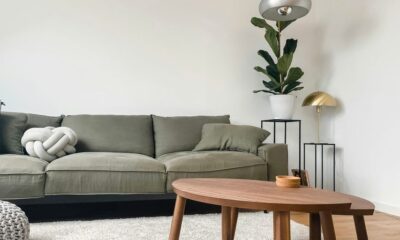
 Home and Garden3 days ago
Home and Garden3 days agoTransform Your Space: A Guide to Minimalist House Interior Design in 2025
-
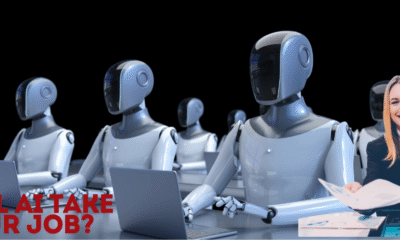
 Innovations5 days ago
Innovations5 days agoWill AI Take Your Job? The Truth About Automation and Employment
-
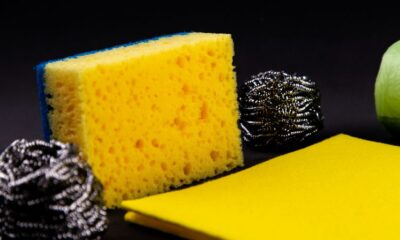
 Home & Family3 days ago
Home & Family3 days ago10 Essential Cleaning Hacks for Bathroom Surfaces You Need to Try
-

 Press Release7 days ago
Press Release7 days agoWhat Makes Alaxio Different from Every Other Altcoin?
-

 Crime3 days ago
Crime3 days agoExploring the Most Anticipated New True Crime Documentaries of 2025
-
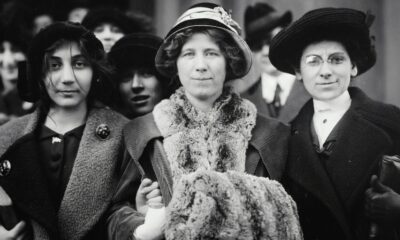
 Health & Fitness3 days ago
Health & Fitness3 days agoDiscover the Best Multivitamin for Women Over 40: A Comprehensive Guide to Optimal Health
-

 Health & Fitness3 days ago
Health & Fitness3 days agoDiscovering the Best Multivitamin for Women Over 40: Essential Nutrients for Optimal Health
-

 Business3 days ago
Business3 days agoMaximize Your Earnings with American Express High Yield Savings Accounts in 2025


















